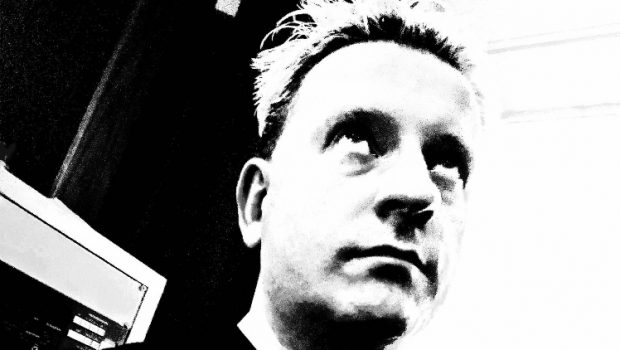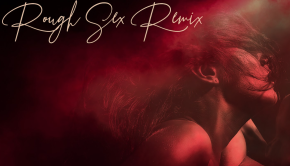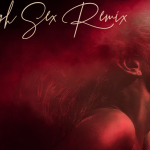Get On The Four With Kish Kollective~
I threw four questions to some musicians… here’s one with Kish Kollective.
Born of Italo-Celtic stock into a slowly rusting northern England in the throes of Thatcher-era de-industrialisation, the young Michele Sarto (“Mike” to those closest to him; other people just can’t pronounce the name properly) was bitten by the horror bug early. After having been “encouraged” to sit through an uncut version of Lucio Fulci’s surreal schlock masterpiece “City of the Living Dead” at the age of 6 by mischievous elder cousins, a lifelong fascination with the darker side of fiction was born. Equally haunted and excited by aftermath images of reanimated corpses, horrific “skull-crush” kills and a young woman literally vomiting out her innards, another element of that particular production was to make an indelible impression on the young Sarto; the maestro Fabio Frizzi’s masterful synthesizer-driven score.Through the intervening decades, this enchantment with the prog rock horror scores of his distant Italian brethren never left him, perhaps the largest component of a much greater love of film and TV soundtracks in general. Always a frustrated soundtrack composer at heart, Sarto’s imagination was captured by Roger Manning (of the short-lived but legendary Jellyfish) and Brian Reitzell’s (formerly of Red Kross) project, “Logan’s Sanctuary”. This was a soundtrack score for a sequel to “Logan’s Run”…but no such film existed. It was entirely imaginary. Sarto had skirted close to such an idea as a teenage composer messing about with a Fender Strat in his bedroom, multi-tracking his own works on an ancient Pioneer cassette deck…but he simply could not conceive of a market for “film music without a film”. Find out more about him on social media
https://twitter.com/KishKollektiv https://www.instagram.com/kishkollektiv
Tell us about the creation of a song, do you think of the lyrics spontaneously or is it a longer process?
While nearly all of Kish Kollektiv’s music is instrumental, one the odd occasion I’ve written lyrics they tend to start out as a fairly unconnected series of ideas and impressions drawn from all kinds of inspiration (life, nostalgia, literature, films, other music and so on) that I write down or type out. Once I’ve done that, I start to introduce a more conventional structure (verse, chorus, middle eight etc.) and some kind of rhyming scheme. What often happens is that once this part of the process is complete, you finish up with something that it is quite different from what you started with.
As far as instrumental pieces go, as I’m primarily a guitarist, most ideas start out with noodling on that instrument before in most cases being adapted for synthesizer. Again, during that transition process, big changes can happen. At other times, I began with the drum and percussion tracks (before adding in synth and guitar parts), which can seriously influence the character of the composition or even the whole project, like the somewhat “dirty” sounding syncopated drum tracks on “Children of the Cambion” or the looser, more free form percussion featured on “Dwellers in the Earth”. In fact, on the latter, the only programmed drum tracks are metronomic kick drum sequences that crop up here and there.
One thing that always amazes me is how you can sometimes sit down to work without any particular solid idea in mind, start messing about aimlessly…and then you happen upon something, experience a “breakthrough” and it can lead very quickly to not only one complete idea but several. That is a great feeling, although it doesn’t always happen that way of course.
Are there certain artists that inspire you?
Mostly the main movers and shakers of the 1970s/80 “Golden Age” of synthesizer scores, John Carpenter, John Harrison, Goblin and Fabio Frizzi are the most obvious examples. I could also list electronica artists like Gary Numan, Vangelis and Jean-Michel Jarre as well as guitar gods like Steve Vai, Joe Satriani, Al Di Meola and Stanley Clarke. I also more subtly draw upon a ludicrously wide variety of genres for inspiration, stretching from hip-hop to industrial, power pop to baroque.
In terms of non-musical inspiration, I suppose it would be cinematic masters of horror like Romero, Carpenter, Fulci and Argento who created the films that necessitated the soundtrack scores. I must also give an honourable mention to the literary giants of the horror genre, King, Barker, Masterton and Laymon who must have played their part in fashioning my macabre leanings and in particular, the late Karl Edward Wagner, whose infamous 1970s short story “Sticks” was the clear and direct inspiration for my second release, “Dwellers in the Earth” (and also “The Blair Witch Project” according to some commentators).
What do you do when you’re not making music? Do you have hobbies or do you still have time to pursue them?
I’m actually a frustrated author! I have written a novel sequel to the 1980s science fiction TV series “V”, which ended on a colossal cliffhanger that has never been resolved in any medium. The story picks up immediately after, beginning a new saga of the franchise which plunges the familiar main cast into an uncertain world of hidden cabals, occult forces and shifting allegiances where nothing is quite what any of the characters had assumed. Despite its 1980s setting, the story is informed by a certain post-9/11 sensitivity and a contemporary subculture rife with notions of invisible hands controlling all that unfolds on the world stage. However, until I can find a publisher to legitimise its existence, it’s just a big chunk of fan fiction.
Is there anything in the music industry that you would like to change if you had the opportunity?
I think streaming platforms, which are increasingly dominating the industry and the way we consume music, should remunerate artists better.
Tweet





























